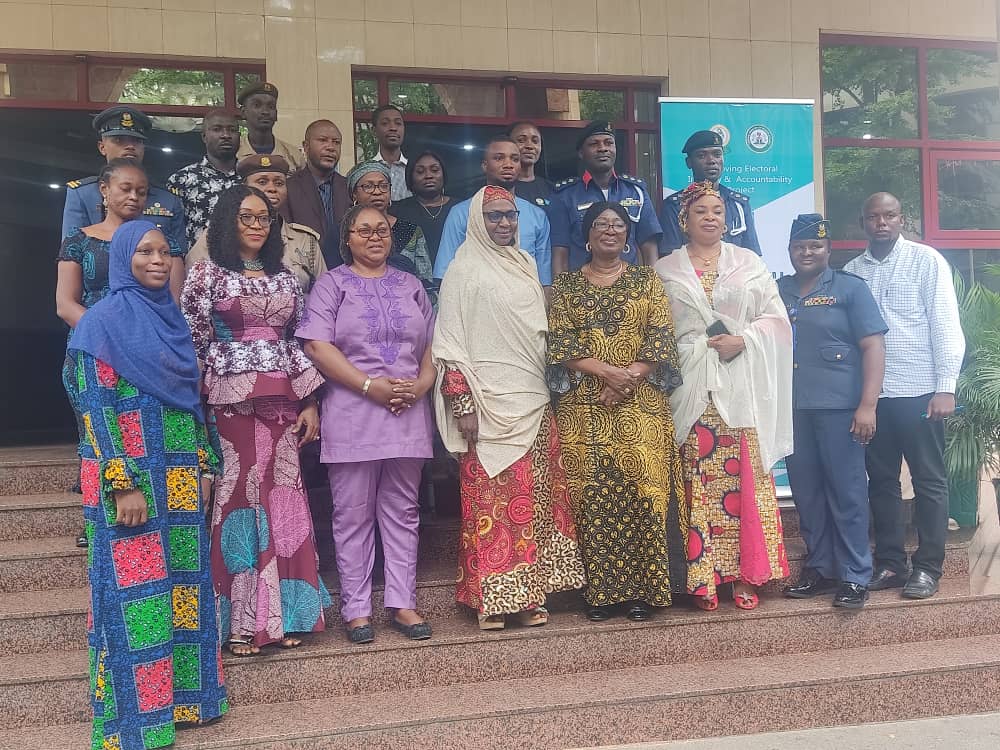
Women’s Rights Advancement and Protection Alternative (WRAPA), on Friday in Abuja, trained no fewer than 30 gender desk officers from the Independent National Electoral Commission (INEC) and various security agencies, on the implementation of revised National Gender Policy.
The training had in attendance security personnel from the Nigeria Security and Civil Defence Corps (NSCDC), Nigeria Immigration Service (NIS), Nigeria Police Force, among others.
Mrs Yemisi Nathaniel, Programmes and Project Coordinator, WRAPA, said the training which is supported by the MacArthur Foundation, was carried out under its “Improving Electoral Integrity and Accountability (IEIA) Project”.
“We are bringing in the INEC gender desk officers and desk officers from the security agencies to ensure that we popularize the newly validated National Gender Policy.
“Which first came in 2006 and a validated copy in 2021 and by March 2022, it was approved by the Federal Executive Council.
“So the essence of the meeting is to update the knowledge of the gender desk officers in INEC and security agencies on the revised National Gender Policy and what is expected of them as the election draws near,” she said.
Mrs Zainab Abdurasheed, WRAPA Programme Officer on the IEIA Project, said that the training was organised to enlighten the participants on how to mainstream gender in their relevant institutions and as they carry out their activities.
“The WRAPA IEIA project seems to ensure that all relevant institutions in various sectors of government in the country, mainstream gender in their implementation and processes towards ensuring no one is left behind.
“This is essential in ensuring that as the 2023 elections is around the corner, stakeholders directly involved in ensuring a free and fair election know the relevance of adopting gender equity and social inclusion in the political space.
“The security sector is one of such and have been engaged to help align their mandates towards integrating the National Gender Policy provisions in the electoral issues before, during and after the elections.
“This can only be achieved if the gender indicators are well domesticated by all strategic stakeholders,” she said.
Prof. Olabisi Aina, a Gender Expert and facilitator at the training, said the policy is to protect not just women but vulnerable groups and all Nigerians.
Aina, who is a lecturer at the Obafemi Awolowo University, Ile-Ife, added that it was important to fill the gender gaps in the developing countries, especially in Nigeria, in other to promote national development.
“Today, we understand that men and women see the world differently and they contribute to it differently and in other to fill that gap, both men and women have something to contribute.
“But the big gender gaps has continued to hinder us especially in the third world countries and for us to get to where we want to get to as a nation, we need to empower the women to fill those gender gaps,” she said.
A participant, Mr Olushina Ajoa, Assistant Gender Focal Officer, NSCDC, appreciated WRAPA for the training, stressing that he had gained more knowledge on how to effectively mainstream gender in his work schedule.(NAN)